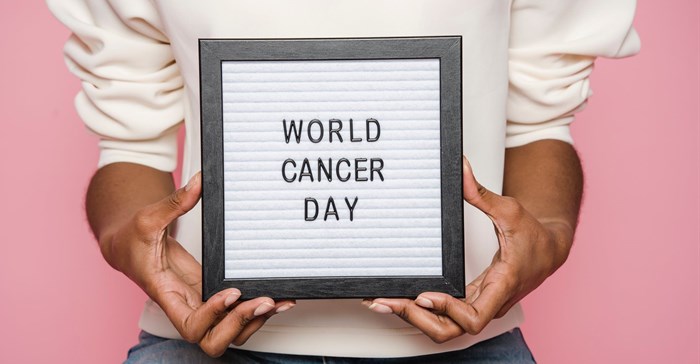
Related





The rise of AI in LMICs: A new era for global healthcare
Ricardo Baptista Leite 17 Mar 2025

Medshield names new CMO
28 Jan 2025
Top stories






More news


Marketing & Media
Ads are coming to AI. Does that really have to be such a bad thing?














These feelings are further exacerbated by barriers that have the potential to rob a patient's quality of life and integrity, thereby impacting on their chance to an improved disease outcome and access to timely and comprehensive treatment and support.
World Cancer Day (4 February 2022), will bring these issues to the fore under this year’s theme of "Close the Care Gap". The three-year campaign aims to recognise and address the barriers that exist for thousands of individuals around the world in accessing the care they require.
“When someone finds out that they have cancer, or the cancer has come back, it can be incredibly confusing and overwhelming to the individual and the family, and at times the community at large. As there are many factors to consider, people may not know what questions to ask their doctors to ensure that they receive timely and comprehensive treatment, in the spirit of universal healthcare.
"Receiving the correct information from doctors is quite important as it can mean the difference between life and death for the patient if they receive the incorrect diagnosis and treatment options.” says Dr Kgothatso Motumi, Market Access and Public Policy head, Roche Pharmaceuticals.
In light of this, Motumi discusses what questions patients need to ask about accessing cancer treatment from their doctors.
● Can I receive an advanced care plan to enable one to plan their life and that of their families? A diagnosis of cancer might affect almost all facets of one’s life, from their mental status, ability to work and earn, anticipated morbidity from the disease or the treatment given, spiritual, family and social interactions. This is important for both the treating physician to understand the patient’s needs and wishes, and allows the patient to make decisions throughout the course of the disease, depending on the aim of treatment.
● Where can I access more information and support with managing the disease? This question is important as it helps the patient gain more information about the disease, apart from the information they would receive from their doctor.
● What effects will this treatment have on my body? This question is significant so that the patient knows what to expect once they start treatment.
● How can I mentally, physically, and emotionally prepare for diagnosis and treatment? By asking this question, patients can be given advice on the steps to take in order to be prepared, such as having counselling to help with preparing emotionally.
The common barriers patients often come across when accessing equitable treatment include income, education, geographical location, discrimination based on ethnicity, race, gender, sexual orientation, age, disability, and a patient’s lifestyle.
The equity gap and the subsequent barriers patients often face can be addressed by:
● Educating the public about cancer prevention
● Equipping healthcare professionals with skills and knowledge on how inequity influences cancer care
● Strengthening primary health care delivered in communities
● Addressing through policy and programmes, some of the social and economic factors that can negatively affect people’s health
● Increasing the resources – meaning both money and people – dedicated to cancer research, and tracking the burden of cancer nationally to shape our investments more effectively
“Cancer is not a death sentence; it is treatable and manageable. This is not an illness that people should ignore as many are suffering from it every day. We need to stand together and close the care gap in order for everyone living with cancer to have equal cancer care. It is important to identify and address the barriers that exist for many people in accessing the care they need. World Cancer Day can remind them that they are not alone,” says Dr Motumi Roche.